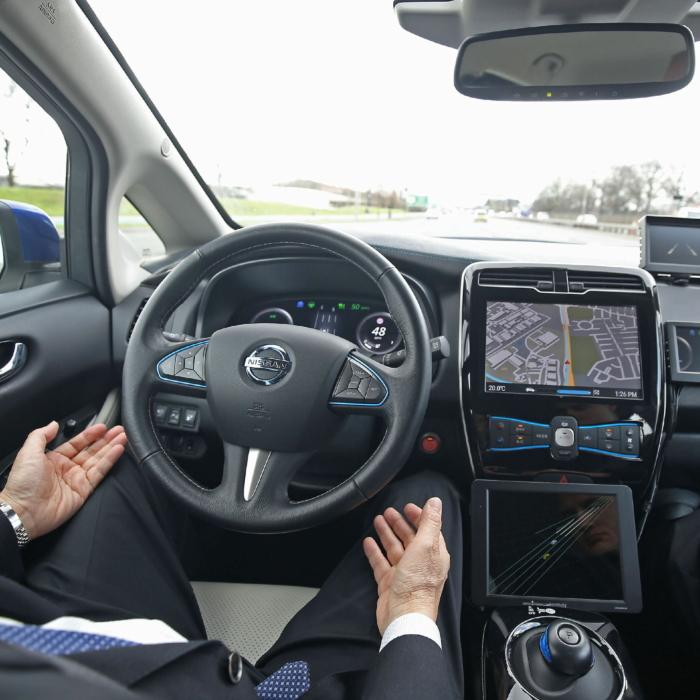British drivers could be sharing the road with self-driving cars as soon as 2026, amid an ongoing debate on the safety of the new technology.
The Department for Transport (DfT) made the announcement after the Automated Vehicles Act received Royal Assent on Monday.
Under the legislation, self-driving vehicles can be rolled out on British roads in 2026, provided that driverless cars achieve a level of safety at least as high as careful and competent human drivers.
Transport Secretary Mark Harper called it a “milestone moment” for the UK’s self-driving car industry, with the potential “to change the way we travel forever.”
“While this doesn’t take away people’s ability to choose to drive themselves, our landmark legislation means self-driving vehicles can be rolled out on British roads as soon as 2026, in a real boost to both safety and our economy,” said Mr. Harper in a statement.
The government has hailed the new act as boosting Britain’s position as a world leader in the self-driving technology and artificial intelligence sectors.
The chief executive of the Society of Motor Manufacturers and Traders, Mike Hawes, described it as a “watershed moment” for automotive innovation and road safety.
“Self-driving vehicles will revolutionise our society, and this new law will help turn ambition into reality, putting the UK alongside a handful of other global markets that already have their regulatory frameworks in place,” said Mr. Hawes in a statement.
Safety Concerns
Concerns over the safety of self-driving vehicles have been raised by politicians and industry representatives as the act made it way through Parliament, since its introduction in November 2023.Last year, the cross-party Transport Committee called the government’s “safety ambition” for driverless cars to replicate human drivers “too weak.” MPs urged the adoption of a stronger threshold, but the government rejected the call for a “clearer” threshold.
However, it included in the bill’s Statement of Safety Principles a requirement for the Secretary of State to consult organisations that appear to them to represent the interests of automated vehicle (AV) manufacturers, road users, and road safety.
According to the National Accident Helpline, the dangers of driverless cars include failures of the autopilot system, the risk of fire owing to the use of lithium-ion batteries, the risk of hacking, and crashing into pedestrians as vehicles are not ready to stop for them.
Charity Cycling UK has advocated for a phased approach, where AVs are first rolled out only on motorways and other car-only environments.
Approval and Trials
The government said the approval system for driverless cars will be supported by independent investigators, while companies will be obliged to keep their vehicles safe in accordance with British laws.For the first time, insurance providers, software developers, and automotive manufacturers can assume responsibility for how the vehicle drives.
The bill distinguishes between self-driving cars that complete an entire journey automatically and those that complete part of a journey, requiring the option of handing back control to a human driver in certain contexts.
Trials of self-driving cars have been taking place in London and Oxford. Founders of UK startup companies Wayve and Oxa, carrying out the trials, have welcomed the legislation, which they said is “more comprehensive in scope and clearer in its requirements than in any other country.”
The government highlighted the economic value of the self-driving vehicle sector. A reported revenue of £475 million in direct investment was generated between 2018 and 2022.







